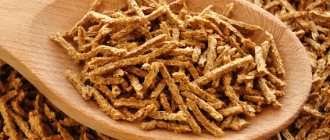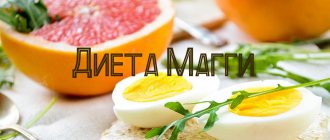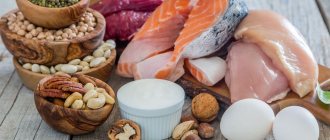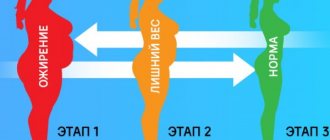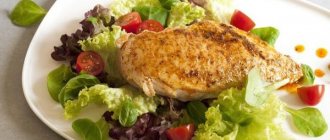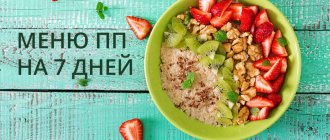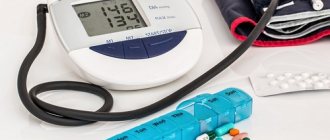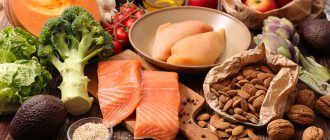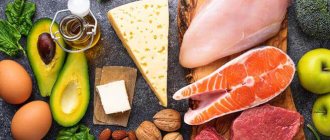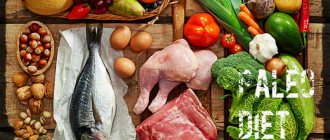Treatment of psoriasis using the Pegano method has long found its recognition and audience. It would seem that a change in lifestyle, especially nutritional benefits, should not particularly affect the treatment of the disease. Moreover, the main cause, the etiopathogenesis of psoriasis and eczema, has not been figured out. Therefore, there is no corresponding effective drug therapy that will cope with the disease forever. But the developments of scientists and clinicians do not stand still. Osteopath John Pegano was among the active fighters for healthy skin without psoriasis.
Alkali-forming products
- Fruits (exception: cranberries, currants, prunes, plums, blueberries) –
· apples, melons and bananas cannot be eaten with other foods, only as a separate meal,
· Do not consume citrus fruits and their juices with whole grains and dairy products.
- Vegetables (exception: legumes, rhubarb, pumpkin, Brussels sprouts - you can eat them in small quantities). Completely exclude from the diet all vegetables of the nightshade family: tomatoes, potatoes, peppers, eggplants!
Also increases alkalinity:
· Adding lecithin to food and drinks. · Freshly squeezed lemon juice in a glass of hot or cold water. · Juices of grapes, pears, apricots, papaya, mango, pineapple, grapefruit and orange. · Fresh and stewed fruits. · Fresh vegetable juices (carrots, celery, beets, parsley, spinach, onions). · 3-5 drops of glycothymoline in a glass of clean water before bed 5 days a week (alkaline mineral waters are recommended as an alternative: Borjomi, Essentuki-4, Smirnovskaya, etc.). · Empty the bowels 2-1 times a day. · Exercise and mobility. · Positive emotions.
Dietary rules for psoriasis
The basics of proper nutrition include following a number of recommendations:
- consume to a minimum foods that help reduce the pH of the skin and intestines, maintain a ratio of 30:70;
- drink plenty of purified still water. The average human norm is 1.5-2 liters per day or 30 ml/kg - daily dose (water supplied with food is not included in the calculations);
- It is recommended to switch to fractional meals 4-5 times a day. Food should enter the body at regular intervals whenever possible. Last dose - 4-6 hours before bedtime;
- Allowed heat treatment: steaming, boiling and oven cooking;
- do not overeat - calculate the daily food intake and divide the resulting mass into equal doses;
- give up bad habits (smoking and drinking alcohol);
- Replace black tea and coffee with herbal infusions and green tea;
- have a bowel movement every day - if you can’t do it on your own, resort to the help of mild laxatives (dairy products, vegetable oils), pharmaceuticals (microenemas);
- limit your medication intake as much as possible. Leave only the necessary ones.
These simple recommendations will help improve digestion, cleanse the body of toxins and get rid of psoriasis.
Acid-forming products
These are products containing proteins, starches, sugars, fats and oils, i.e. - meat, grains, cheese, sugar, potatoes, dried peas, beans, oils, cream, meat products. Their combinations in large quantities create an acid reaction in the blood, thereby worsening the condition of patients with psoriasis.
Exclude if possible:
· combining several acid-forming foods during one meal: starch and sweets, protein and meat products, meat or fatty products with sugars or a lot of starches; · sugar and products containing it; · most types of vinegar; · products with preservatives, artificial additives, dyes, etc.; · alcohol; · drug overdose; Irregular bowel movements, constipation; · inactivity (mental and physical); · negative emotions.
What foods should you avoid?
The Pegano diet also includes in the list of foods prohibited for psoriasis:
- rich meat soups;
- fatty meats, lard, offal;
- seasonings (garlic, pepper, vinegar, horseradish, cloves, nutmeg);
- roasted and salted nuts;
- easily digestible porridges (barley, semolina);
- highly allergenic vegetables and fruits (pumpkin, pineapple, melon, blueberries, cranberries, mango).
It is necessary to exclude all products with a “fixing” effect that cause constipation, and avoid foods and dishes with preservatives and food additives.
Foods and drinks that Dr. Pegano recommends for people with psoriasis
So, let's take a closer look at the foods and drinks that Dr. Pegano recommends for people suffering from psoriasis and psoriatic arthritis.
He believes that 70-80% of the daily diet should consist of foods such as:
· Water: 6-8 glasses of clean water daily in addition to other liquids you drink.
· Lecithin (granulated): 1 table. spoon 3 rubles per day, 5 days a week.
· Fruits are preferably fresh, fresh frozen, steamed, rarely canned.
Recommended fruits are: apples (baked), apricots, most berries, cherries, dates, figs, grapes, grapefruit, lemon, lime, mango, nectarine, orange, papaya, peaches, pineapples, prunes (small), raisins, kiwi.
Avocados, cranberries, currants, plums and prunes (large) can be eaten in small quantities.
Raw apples, bananas and melons are allowed if eaten separately from other foods and in small quantities.
Vegetables are preferably fresh, fresh frozen, steamed, and rarely canned.
Recommended vegetables: asparagus, beets, broccoli, Brussels sprouts, cabbage, carrots, celery (stem), cucumber, garlic, lettuce, romaine, onions, olives, parsnips, pumpkin, shallots, spinach, sprouts, capsicum beans, zucchini, sweet potatoes, yams, watercress.
Possible in small quantities: corn, dried beans, peas, lentils, rhubarb, mushrooms. Nuts – almonds, rarely – hazelnuts.
General rules. Duration of the diet.
Psoriasis is a chronically relapsing disease. However, properly selected nutrition is the key to long-term remission and good health of the patient.
The diet is based on several principles:
- Meals are shown in small portions at intervals of three hours.
- Minimizing salt and salty foods in the diet.
- Eliminating fried foods from the diet.
- Recommended cooking methods are steaming, stewing and boiling.
- Including foods rich in plant fiber in your diet.
- Complete abstinence from alcohol.
- Drinking regime. Daily water consumption is 2-3 liters.
20-30% of the daily diet should consist of foods such as:
Cereals - by weight, barley, millet, buckwheat, rye (porridges made from them), bran, wheat - whole, crushed, flakes, crispbread, sprouts, corn and corn flour, rice (brown and wild), whole seeds - pumpkin, sesame , sunflower, flax, pasta (without using white flour).
Fish at least 4 times a week, never fry ! Tuna, bluefish, cod, mackerel, coryphaena, flounder, haddock, halibut, perch, salmon, sardines, sole, sturgeon, swordfish, trout, whitefish, sushi.
Poultry - chicken, turkey, partridge, lean game (all without skin, white meat is preferable), 2-3 times a week.
Meat - only lamb, separated from fat, well cooked (1-2 times a week), never fry, eat 110-170g at a time.
Dairy . Milk (reduced fat, skim), buttermilk, powdered milk, goat milk, soy milk, almond milk, butter, reduced fat margarine, cheese (reduced fat and salt), cottage cheese and processed cheese (reduced fat and salt), kefir, plain yogurt (low-fat, low-fat).
Eggs only soft-boiled or hard-boiled, 2-4 times a week.
Oil - olive, rapeseed, sunflower, corn, cottonseed, soybean, almond, and occasionally sesame. 1 teaspoon 3 times a day is acceptable.
Teas. Tea made from chamomile, mullein, watermelon seeds.
Products not recommended by John Pegano:
Berries and fruits: strawberries, strawberries (citrus fruits - for psoriatic arthritis).
Vegetables: all nightshades - tomatoes, tobacco, eggplants, peppers, potatoes, paprika.
Cereals: White bread and all products made with white flour.
Fish: anchovies, herring, salmon, caviar, crustaceans (crabs, lobsters, shrimp), shellfish (mussels, oysters, scallops, squid), crustacean sauces, fish baked in batter or breadcrumbs, fried, marinated or smoked.
Poultry: fatty poultry (duck, goose), poultry skin, fried, smoked, baked with lots of spices, in batter or breadcrumbs, not boiled.
Meat: beef, pork, veal and everything prepared from them: hamburgers, sausages, sausages, ham, sausages, entrails (heart, kidneys, brains, liver, etc.), inclusion of starchy foods in the same meal with lamb.
Dairy: All dairy products are high in fat.
Yeast or yeast products.
Coffee: no more than 3 cups per day (in case of severe addiction), only black decaffeinated.
Other: All fried foods, pizza, alcohol, sweet cereals, vinegar, marinades, smoked meats, hot spices, coconut, palm oil.
It must be remembered that some foods should not be combined in the same meal; it is advisable to eat them separately.
What not to do?
· Do not combine whole grains, e.g. porridge, bread, etc. with fruits, citrus juices or stewed and dried fruits.
· Do not combine citrus fruits and their juices with dairy products such as cheese, milk and yogurt.
· Do not combine any fruits with white flour products: bread, cereals, pasta, etc.
· Do not combine melons, raw apples, bananas with other foods. Do not add milk, cream or sugar to coffee or tea.
· Do not combine too many acid-forming foods (proteins, some starches, sugars, fats and oils) in the same meal.
· Red or white wine can be drunk occasionally (55-110 g).
· Overeating is never allowed, even on foods that are allowed.
What else is important for the treatment of psoriasis, besides diet?
Following the basics of proper nutrition for psoriasis, eating simple foods and avoiding overeating plays an important role in combating the disease. To enhance the positive effect of a diet for psoriasis, you can (and should!) use skin care products that help it recover faster after periods of exacerbation of the disease. La-Cri products are well suited for this purpose; they are made from natural ingredients and do not contain fragrances, parabens or hormones. Thanks to their balanced and harmless composition, these products are suitable for use by people with sensitive skin, as well as pregnant women and children. Regular use of La-Cri medicinal cosmetics helps reduce rashes, redness, peeling and itching.
Dr. Pegano's regimen
In addition to diet, Dr. Pegano recommends sticking to a specific routine. Here are the main components of the lifestyle of a psoriasis patient:
· Daily consumption, as mentioned above, is 6-8 glasses of pure water daily in addition to other liquids drunk before and after meals. The cleaner the water, the better.
· Use of natural laxatives. The best natural laxatives are fresh fruits and vegetables. Also, foods rich in vitamin B help cleanse the intestines. The following foods are rich in vitamin B: wheat germ, brewer's yeast, whole grain barley, soy milk, buckwheat, raw peas, egg yolks, rye bread, almonds, fish, poultry, honey, turnips, beets, green leafy vegetables and broccoli.
· Olive oil, taken alone, is a very practical and effective laxative. Take half a teaspoon of olive oil 3-4 times a day until you have a good bowel movement.
· Include fiber-rich foods as much as possible in your daily diet. They cleanse the colon due to their inability to be completely digested. Fiber-rich foods include whole grain bread, whole grain cereals, fresh fruits, vegetables and almonds.
· Be sure to take steam baths to cleanse and stimulate the skin.
· Find time for exercise! Physical education, especially outdoors, brings significant benefits.
· Try never to overeat.
· A correct and positive attitude is very important, because negative, destructive thoughts contribute to the production of oxidizing toxins.
Pegano diet - pros and cons
Pegano says most patients were willing to follow the diet if they knew it. However:
- Different sources give conflicting information about the diet. This is confusing for psoriasis sufferers. And as a result, they don't know who to trust.
- Dermatologists hardly talk about diet. Doctors do not know about the influence of nutrition on the development and exacerbation of psoriasis. Therefore, doctors predominantly consider diet either an insignificant factor in the treatment of psoriasis, or generally deny its effectiveness.
At the same time, the example of Pegano’s patients convincingly showed that it is the diet for psoriasis that plays a key role in the treatment of the disease. Therefore, in this article we will consider in detail the principles of nutrition according to Pegano for psoriasis. The food table will help you figure out which foods Pegano recommends consuming or, conversely, excluding from your diet. And you can come up with a menu and please yourself with varied and nutritious meals for the week.
Pegano is convinced that the cause of psoriasis is in the intestines. And intestinal problems are caused by poor nutrition and excess toxins. Therefore, the essence of psoriasis treatment is to rid the body of toxins. And this is achieved in two ways:
- The diet limits the intake of new toxins;
- A comprehensive cleansing of the body eliminates already accumulated toxins.
John Pegano called his method of treating psoriasis “The Natural Way” and described it in a book. His approach involves six steps, with diet at the center of it.
Scabies in humans is a contagious disease that occurs due to the parasitism of scabies mites on the skin. A person becomes infected after direct contact with a person with scabies through a handshake and objects or clothing. Read more in the article: “scabies: signs and treatment.”
Sources
- Katsimbri P., Korakas E., Kountouri A., Ikonomidis I., Tsougos E., Vlachos D., Papadavid E., Raptis A., Lambadiari V. The Effect of Antioxidant and Anti-Inflammatory Capacity of Diet on Psoriasis and Psoriatic Arthritis Phenotype: Nutrition as Therapeutic Tool? // Antioxidants (Basel) - 2021 - Vol10 - N2 - p.; PMID:33499118
- Castaldo G., Pagano I., Grimaldi M., Marino C., Molettieri P., Santoro A., Stillitano I., Romano R., Montoro P., D'Ursi AM., Rastrelli L. Effect of Very-Low -Calorie Ketogenic Diet on Psoriasis Patients: A Nuclear Magnetic Resonance-Based Metabolomic Study. // J Proteome Res - 2021 - Vol20 - N3 - p.1509-1521; PMID:33164516
- Barrea L., Megna M., Cacciapuoti S., Frias-Toral E., Fabbrocini G., Savastano S., Colao A., Muscogiuri G. Very low-calorie ketogenic diet (VLCKD) in patients with psoriasis and obesity: an update for dermatologists and nutritionists. // Crit Rev Food Sci Nutr - 2021 - Vol - NNULL - p.1-17; PMID:32969257
- Winiarska-Mieczan A., Mieczan T., Wójcik G. Importance of Redox Equilibrium in the Pathogenesis of Psoriasis-Impact of Antioxidant-Rich Diet. // Nutrients - 2021 - Vol12 - N6 - p.; PMID:32575706
- Wu AG., Weinberg JM. Correction: The Impact of Diet on Psoriasis. // Cutis - 2021 - Vol104 - N4 - p.241; PMID:31774892
- Wu AG., Weinberg JM. The impact of diet on psoriasis. // Cutis - 2021 - Vol104 - N2S - p.7-10; PMID:31634384
- Macklis P., Adams KM., Li D., Krispinsky A., Bechtel M., Trinidad J., Kaffenberger J., Kumar P., Kaffenberger BH. The impacts of oral health symptoms, hygiene, and diet on the development and severity of psoriasis. // Dermatol Online J - 2019 - Vol25 - N7 - p.; PMID:31450285
- Korovesi A., Dalamaga M., Kotopouli M., Papadavid E. Adherence to the Mediterranean diet is independently associated with psoriasis risk, severity, and quality of life: a cross-sectional observational study. // Int J Dermatol - 2021 - Vol58 - N9 - p.e164-e165; PMID:31168780
- Pona A., Haidari W., Kolli S.S., Feldman S.R. Diet and psoriasis. // Dermatol Online J - 2021 - Vol25 - N2 - p.; PMID:30865402
- Molina-Leyva A., Cuenca-Barrales C., Vega-Castillo JJ., Ruiz-Carrascosa JC., Ruiz-Villaverde R. Adherence to Mediterranean diet in Spanish patients with psoriasis: Cardiovascular benefits? // Dermatol Ther - 2021 - Vol32 - N2 - p.e12810; PMID:30632241

